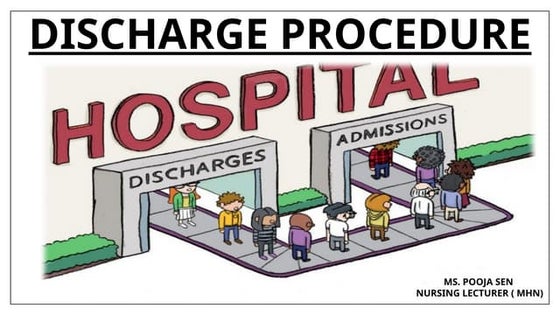1 of 35
Download to read offline



































Recommended
IMPORTANCE OF PLAY



IMPORTANCE OF PLAYSachin Gadade
╠²
The document discusses the importance of play for children's development. It states that play helps children develop physically, intellectually, emotionally, and socially. It also outlines different types of play appropriate for different age groups, from infants to school-aged children. The document provides guidance on selecting safe and age-appropriate toys and the role of parents and nurses in facilitating play.value of play matrial.pptx



value of play matrial.pptxSachinDwivedi57
╠²
This document discusses the importance and types of play for children's development. It summarizes that play is essential for children's physical, intellectual, emotional, and social growth. Different types of play are described for different age groups, from infants to school-aged children. Guidelines are provided for selecting safe and age-appropriate play materials, as well as the role of parents and nurses in facilitating play.Health album on play theapy



Health album on play theapymanisha kulkarni
╠²
This document provides information on play therapy and the importance of play for child development. It defines play therapy as using play to help children address psychosocial issues and develop optimally. Play is important for children's physical, intellectual, emotional, social, and moral development as it allows them to learn, express emotions, and socialize. The document outlines different types of play for different age groups and discusses selecting age-appropriate play materials and ensuring safety. The overall aim of play therapy is to decrease behavioral and emotional difficulties interfering with healthy development.Babitha's Notes on play



Babitha's Notes on playBabitha Devu
╠²
Play is mandatory for every child, let the age of the child be 0 or 18 years.
This topic will help you to recognize the importance and types of play. Further, it also important to know about play materials that is to be used at various age group.01a Topic1 TYPES OF PLAY.pptx



01a Topic1 TYPES OF PLAY.pptxFlorence461632
╠²
Play is essential for children's development and learning. There are different types of play that develop as children grow. Early play involves sensory exploration and motor skills, while later play incorporates pretend, social, and rule-based elements. Play benefits children by supporting physical, cognitive, social, and emotional growth. It allows children to learn skills, develop relationships, express creativity, and reduce stress in an engaging way. Overall, play is a natural part of how children learn and should be encouraged.Role of play in enhancing development



Role of play in enhancing developmentsyd Shafeeq
╠²
Play is the work of children. It consists of those activities performed for self-amusement that have behavioral, social, and psychomotor rewards. Play is an important part of the childhood development. Through play children learn about shapes, colors, cause and effect, and themselves. Besides cognitive thinking, play helps the child learn social and psychomotor skills. It is a way of communicating joy, fear , sorrow, and anxiety.
Playing is crucial in enhancing social development in children. Unstructured active play with others ŌĆō including parents, siblings and peers ŌĆō is a significant opportunity to cultivate social skills. Playing also provides opportunities for children to learn social interaction. While playing together, children learn to cooperate, follow the rules, develop self-control, and generally get along with other people. Play is essential to development because it contributes to the cognitive, physical, social, and emotional well-being of children and youth. Play also offers an ideal opportunity for parents to engage fully with their children.Importance of play



Importance of playMeenu Sheenu
╠²
Play is essential for children's growth and development. It helps with physical, social, intellectual, emotional, and moral development. There are different types of play based on content, such as sense pleasure play, skill play, dramatic play, and games with rules. There are also types of play based on social interactions, like solitary play, parallel play, associative play, and cooperative play. The selection of toys should consider safety, age appropriateness, and the child's interests. Nurses should educate parents on the importance of play and how to facilitate safe and developmentally-appropriate play.Play



Playjoslinvjohn
╠²
The document discusses play and toys from early childhood development perspectives. It defines play and toys, outlines the characteristics and types of play, and describes the values and social aspects of play. It also provides information on selecting age-appropriate toys to support children's physical, cognitive, and social-emotional development.Play



Playravinder bhagat
╠²
This document provides an overview of play and its importance for child development. It defines play as an activity done for enjoyment that promotes growth. Play is important for physical, intellectual, emotional, moral and social development as it allows children to strengthen muscles, learn skills, express emotions, understand social norms, and interact with others. The document also outlines Parten's stages of play, including unoccupied, solitary, onlooker, parallel, associative, and cooperative play.Play in growth &development



Play in growth &developmentUsha Nagendra
╠²
This document discusses the importance and benefits of play for children's development. It outlines several key functions and benefits of play, including:
1) Play is important for children's physical, intellectual, social, and emotional development. It allows them to explore their world, learn skills like problem solving, and develop relationships.
2) There are different types of play that are developmentally appropriate at different ages, from solitary play in infants to cooperative play in older children.
3) Play can help reduce stress and allow children to express emotions, especially important for hospitalized children facing an unfamiliar environment. Providing age-appropriate toys and engaging in play benefits children's well-being.Pre school in sonipat



Pre school in sonipatLearning Yard An International Pre ŌĆō School
╠²
Children are playful by nature. Their earliest experiences exploring with their senses lead them to play, first by themselves and eventually with others. The National Association for the Education of Young Children (NAEYC) has included play as a criterion in its accreditation process for programs for young children. ŌĆ£They call it their work,ŌĆØ says Peter Pizzolongo, associate director for professional development at NAEYC. ŌĆ£When theyŌĆÖre learning and playing with joy, then itŌĆÖs a positive experience. They develop a positive approach to learning.ŌĆØPlaying with Intent



Playing with IntentSusan Abraham
╠²
Playing with Intent discusses the importance of play for child development. It highlights that play is a child's natural language and how engaging in play helps parents understand and support their child's growth. The document provides developmental milestones and age-appropriate play suggestions from birth to age 4 to help facilitate children's physical, cognitive, language, and emotional development through play. The summary concludes that regular parent-child play time builds strong bonds and supports children's confidence, well-being, and social skills.Importance of Play



Importance of PlayPushpa263
╠²
This document discusses play therapy and the importance of play. It defines play therapy as using play to help clients prevent or resolve psychological issues and achieve optimal growth. Play therapy can be directive, with structure from the therapist, or non-directive, where children work towards their own solutions. The document also outlines the physical, intellectual, moral, creative and social benefits children gain from play, and stresses the importance of supervision and safety when selecting toys.Child health care the play ..important and types



Child health care the play ..important and typesmoonaltayib
╠²
This is discuss play as part of child health care as normal activity for any child in the early childhood phasePlayandplaymaterials ....B.Sc. NUrisng III year & GNM 



Playandplaymaterials ....B.Sc. NUrisng III year & GNM Rahul Dhaker
╠²
Play is essential for children's development. It promotes physical, intellectual, emotional, and moral growth. Physically, play helps develop motor skills and coordination. Intellectually, it fosters learning of concepts like colors, numbers, and problem-solving. Emotionally, play is an outlet for stress and helps children interact socially. Morally, play involves learning norms of behavior. The type of play varies by age from sensory exploration in infants to pretend play in preschoolers to sports and hobbies in school-aged children. Play materials should be age-appropriate, safe, and encourage learning. Parents should supervise play and teach children proper use of toys.Play based learning research power poing



Play based learning research power poingtoakes00
╠²
Play-based learning is an important part of early childhood education. It allows children to explore, learn social skills, develop imagination and problem solving through different types of play like sensory, pretend, and physical play. However, many kindergarten classrooms have reduced or eliminated playtime in favor of more academic instruction and standardized testing preparation. Research shows children who engage in socio-dramatic play have better language, social, and self-regulation skills. Educators should make time and space for different types of play daily and find ways to incorporate it into the classroom.Explain The Stages Of Child Development



Explain The Stages Of Child DevelopmentMichelle Bojorquez
╠²
This document discusses Piaget's three stages of child development as they relate to observing a child's social behaviors during recess or lunch at school. The observer would pose as a school staff member and measure how the child's social behaviors like sharing, taking turns, and communication change over time when interacting with peers. The goal is to assess the child's social development and competency through observing them in a social setting like recess.Play for childrens



Play for childrensABHIJIT BHOYAR
╠²
Play is helful for the childs Growth and development. it helps to develop the gross motor and fine motor development.Partens six stages of play



Partens six stages of playandrianna victoria
╠²
The document outlines Mildred Parten's six stages of play: unoccupied play, solitary play, onlooker play, parallel play, associative play, and cooperative play. It describes each stage, including the typical age ranges and skills developed at each stage. Unoccupied play involves no real engagement and is seen in infants. Solitary play involves playing alone and is common in toddlers ages 2-3. Onlooker play involves observing others play without joining in. Parallel play and associative play involve playing side-by-side or together without set rules, developing social and language skills. Cooperative play involves assigned roles and group goals for children ages 4-6.Socialemotional 100526095843-phpapp01



Socialemotional 100526095843-phpapp01Cordova Public College and University of Cebu-LapuLapu-Mandaue
╠²
This document provides guidance for parents on supporting their child's social-emotional health and development from birth to age 5. It discusses the importance of social-emotional skills for school readiness and outlines specific parenting strategies in three key areas: 1) building strong relationships through responsive caregiving, 2) using positive discipline to set limits and teach appropriate behaviors, and 3) seeking help from early childhood specialists if concerns arise about a child's social-emotional development. The overall message is that parents play a critical role in intentionally fostering social-emotional skills through everyday interactions and routines.Play and play materials...ppt



Play and play materials...pptRahul Dhaker
╠²
The document discusses the importance of play for children's development. It states that play is important for physical, intellectual, emotional, and moral development. It promotes growth in areas like motor skills, problem-solving, social skills, and understanding of norms and values. The document outlines different types of play for different age groups, from sensory play in infancy to competitive sports and hobbies in adolescence. It also provides guidance on selecting age-appropriate toys and maintaining safety during play.Play Therapy (Play in Children)



Play Therapy (Play in Children)Alam Nuzhathalam
╠²
Play in Children or Play Therapy (Importance of Play, Functions of Play, Age-Related Play, Categories of Play, Types of Play, Selection, Safety and Guidelines).Social Emotional Booklet



Social Emotional BookletEarly On Michigan
╠²
This document provides guidance for parents on supporting their young child's social-emotional health and school readiness. It explains that social-emotional skills like forming relationships, managing emotions, and exploring environments are critical for school success. Parents can help develop these skills through daily interactions like cuddling, responding when their child communicates, sharing smiles and conversations during routines, following their child's lead in play, and gently guiding them in social situations. Matching expectations to what is developmentally appropriate also helps avoid frustration.teaching mathematics in year three_play



teaching mathematics in year three_playLetchumi Perumal
╠²
The document describes two teaching activities for a mathematics course on teaching mathematics in year three.
The first activity involves construction play where students build houses out of 3D shapes. This helps students develop spatial reasoning skills. The second activity involves role play at a pretend store where students practice using money to buy items and make change. Both activities allow students to learn mathematics concepts through play in an engaging manner. The document emphasizes that play is important for children's learning and development.║▌║▌▀Ż share



║▌║▌▀Ż sharechels-seitz
╠²
This document discusses peer relationships and social development in early childhood. It explains that peer interactions progress from solitary play to parallel play to associative play and finally cooperative play between ages 1-3. It also discusses the importance of social skills for group entry, the development of aggression and prosocial behavior, and the influence of parenting on these behaviors.Play in children NR.pptx



Play in children NR.pptxNirmala Roberts
╠²
This document discusses the importance of play for children's development. It notes that play is a child's work and pleasure, promotes growth, and has no serious motive. Play is important for children's physical, intellectual, emotional, social, and moral development at different ages. It provides examples of age-appropriate play materials and activities for infants, toddlers, preschoolers, school-aged children, and adolescents. The document also discusses the role of parents and nurses in selecting safe play materials and facilitating children's play.Child psychology



Child psychologyOmkarAngolkar
╠²
This document provides an overview of child psychology and development. It discusses key topics like the role of parents, the developmental process of children, and effects on children. Regarding developmental process, it covers emotional, social, and moral development at different stages from infancy to adolescence. It emphasizes the importance of play and developing interests. For parents, it discusses the need for extended families and avoiding quarrels. The effects section examines impacts of COVID-19 like increased boredom, loneliness, and screen time in children during lockdowns.Azure Data Engineer Interview Questions By ScholarHat



Azure Data Engineer Interview Questions By ScholarHatScholarhat
╠²
Azure Data Engineer Interview Questions By ScholarHatMore Related Content
Similar to importanceofplay-171226140145.pbbbbbbnpt (20)
Play



Playjoslinvjohn
╠²
The document discusses play and toys from early childhood development perspectives. It defines play and toys, outlines the characteristics and types of play, and describes the values and social aspects of play. It also provides information on selecting age-appropriate toys to support children's physical, cognitive, and social-emotional development.Play



Playravinder bhagat
╠²
This document provides an overview of play and its importance for child development. It defines play as an activity done for enjoyment that promotes growth. Play is important for physical, intellectual, emotional, moral and social development as it allows children to strengthen muscles, learn skills, express emotions, understand social norms, and interact with others. The document also outlines Parten's stages of play, including unoccupied, solitary, onlooker, parallel, associative, and cooperative play.Play in growth &development



Play in growth &developmentUsha Nagendra
╠²
This document discusses the importance and benefits of play for children's development. It outlines several key functions and benefits of play, including:
1) Play is important for children's physical, intellectual, social, and emotional development. It allows them to explore their world, learn skills like problem solving, and develop relationships.
2) There are different types of play that are developmentally appropriate at different ages, from solitary play in infants to cooperative play in older children.
3) Play can help reduce stress and allow children to express emotions, especially important for hospitalized children facing an unfamiliar environment. Providing age-appropriate toys and engaging in play benefits children's well-being.Pre school in sonipat



Pre school in sonipatLearning Yard An International Pre ŌĆō School
╠²
Children are playful by nature. Their earliest experiences exploring with their senses lead them to play, first by themselves and eventually with others. The National Association for the Education of Young Children (NAEYC) has included play as a criterion in its accreditation process for programs for young children. ŌĆ£They call it their work,ŌĆØ says Peter Pizzolongo, associate director for professional development at NAEYC. ŌĆ£When theyŌĆÖre learning and playing with joy, then itŌĆÖs a positive experience. They develop a positive approach to learning.ŌĆØPlaying with Intent



Playing with IntentSusan Abraham
╠²
Playing with Intent discusses the importance of play for child development. It highlights that play is a child's natural language and how engaging in play helps parents understand and support their child's growth. The document provides developmental milestones and age-appropriate play suggestions from birth to age 4 to help facilitate children's physical, cognitive, language, and emotional development through play. The summary concludes that regular parent-child play time builds strong bonds and supports children's confidence, well-being, and social skills.Importance of Play



Importance of PlayPushpa263
╠²
This document discusses play therapy and the importance of play. It defines play therapy as using play to help clients prevent or resolve psychological issues and achieve optimal growth. Play therapy can be directive, with structure from the therapist, or non-directive, where children work towards their own solutions. The document also outlines the physical, intellectual, moral, creative and social benefits children gain from play, and stresses the importance of supervision and safety when selecting toys.Child health care the play ..important and types



Child health care the play ..important and typesmoonaltayib
╠²
This is discuss play as part of child health care as normal activity for any child in the early childhood phasePlayandplaymaterials ....B.Sc. NUrisng III year & GNM 



Playandplaymaterials ....B.Sc. NUrisng III year & GNM Rahul Dhaker
╠²
Play is essential for children's development. It promotes physical, intellectual, emotional, and moral growth. Physically, play helps develop motor skills and coordination. Intellectually, it fosters learning of concepts like colors, numbers, and problem-solving. Emotionally, play is an outlet for stress and helps children interact socially. Morally, play involves learning norms of behavior. The type of play varies by age from sensory exploration in infants to pretend play in preschoolers to sports and hobbies in school-aged children. Play materials should be age-appropriate, safe, and encourage learning. Parents should supervise play and teach children proper use of toys.Play based learning research power poing



Play based learning research power poingtoakes00
╠²
Play-based learning is an important part of early childhood education. It allows children to explore, learn social skills, develop imagination and problem solving through different types of play like sensory, pretend, and physical play. However, many kindergarten classrooms have reduced or eliminated playtime in favor of more academic instruction and standardized testing preparation. Research shows children who engage in socio-dramatic play have better language, social, and self-regulation skills. Educators should make time and space for different types of play daily and find ways to incorporate it into the classroom.Explain The Stages Of Child Development



Explain The Stages Of Child DevelopmentMichelle Bojorquez
╠²
This document discusses Piaget's three stages of child development as they relate to observing a child's social behaviors during recess or lunch at school. The observer would pose as a school staff member and measure how the child's social behaviors like sharing, taking turns, and communication change over time when interacting with peers. The goal is to assess the child's social development and competency through observing them in a social setting like recess.Play for childrens



Play for childrensABHIJIT BHOYAR
╠²
Play is helful for the childs Growth and development. it helps to develop the gross motor and fine motor development.Partens six stages of play



Partens six stages of playandrianna victoria
╠²
The document outlines Mildred Parten's six stages of play: unoccupied play, solitary play, onlooker play, parallel play, associative play, and cooperative play. It describes each stage, including the typical age ranges and skills developed at each stage. Unoccupied play involves no real engagement and is seen in infants. Solitary play involves playing alone and is common in toddlers ages 2-3. Onlooker play involves observing others play without joining in. Parallel play and associative play involve playing side-by-side or together without set rules, developing social and language skills. Cooperative play involves assigned roles and group goals for children ages 4-6.Socialemotional 100526095843-phpapp01



Socialemotional 100526095843-phpapp01Cordova Public College and University of Cebu-LapuLapu-Mandaue
╠²
This document provides guidance for parents on supporting their child's social-emotional health and development from birth to age 5. It discusses the importance of social-emotional skills for school readiness and outlines specific parenting strategies in three key areas: 1) building strong relationships through responsive caregiving, 2) using positive discipline to set limits and teach appropriate behaviors, and 3) seeking help from early childhood specialists if concerns arise about a child's social-emotional development. The overall message is that parents play a critical role in intentionally fostering social-emotional skills through everyday interactions and routines.Play and play materials...ppt



Play and play materials...pptRahul Dhaker
╠²
The document discusses the importance of play for children's development. It states that play is important for physical, intellectual, emotional, and moral development. It promotes growth in areas like motor skills, problem-solving, social skills, and understanding of norms and values. The document outlines different types of play for different age groups, from sensory play in infancy to competitive sports and hobbies in adolescence. It also provides guidance on selecting age-appropriate toys and maintaining safety during play.Play Therapy (Play in Children)



Play Therapy (Play in Children)Alam Nuzhathalam
╠²
Play in Children or Play Therapy (Importance of Play, Functions of Play, Age-Related Play, Categories of Play, Types of Play, Selection, Safety and Guidelines).Social Emotional Booklet



Social Emotional BookletEarly On Michigan
╠²
This document provides guidance for parents on supporting their young child's social-emotional health and school readiness. It explains that social-emotional skills like forming relationships, managing emotions, and exploring environments are critical for school success. Parents can help develop these skills through daily interactions like cuddling, responding when their child communicates, sharing smiles and conversations during routines, following their child's lead in play, and gently guiding them in social situations. Matching expectations to what is developmentally appropriate also helps avoid frustration.teaching mathematics in year three_play



teaching mathematics in year three_playLetchumi Perumal
╠²
The document describes two teaching activities for a mathematics course on teaching mathematics in year three.
The first activity involves construction play where students build houses out of 3D shapes. This helps students develop spatial reasoning skills. The second activity involves role play at a pretend store where students practice using money to buy items and make change. Both activities allow students to learn mathematics concepts through play in an engaging manner. The document emphasizes that play is important for children's learning and development.║▌║▌▀Ż share



║▌║▌▀Ż sharechels-seitz
╠²
This document discusses peer relationships and social development in early childhood. It explains that peer interactions progress from solitary play to parallel play to associative play and finally cooperative play between ages 1-3. It also discusses the importance of social skills for group entry, the development of aggression and prosocial behavior, and the influence of parenting on these behaviors.Play in children NR.pptx



Play in children NR.pptxNirmala Roberts
╠²
This document discusses the importance of play for children's development. It notes that play is a child's work and pleasure, promotes growth, and has no serious motive. Play is important for children's physical, intellectual, emotional, social, and moral development at different ages. It provides examples of age-appropriate play materials and activities for infants, toddlers, preschoolers, school-aged children, and adolescents. The document also discusses the role of parents and nurses in selecting safe play materials and facilitating children's play.Child psychology



Child psychologyOmkarAngolkar
╠²
This document provides an overview of child psychology and development. It discusses key topics like the role of parents, the developmental process of children, and effects on children. Regarding developmental process, it covers emotional, social, and moral development at different stages from infancy to adolescence. It emphasizes the importance of play and developing interests. For parents, it discusses the need for extended families and avoiding quarrels. The effects section examines impacts of COVID-19 like increased boredom, loneliness, and screen time in children during lockdowns.Recently uploaded (20)
Azure Data Engineer Interview Questions By ScholarHat



Azure Data Engineer Interview Questions By ScholarHatScholarhat
╠²
Azure Data Engineer Interview Questions By ScholarHatComprehensive Guide to Antibiotics & Beta-Lactam Antibiotics.pptx



Comprehensive Guide to Antibiotics & Beta-Lactam Antibiotics.pptxSamruddhi Khonde
╠²
¤ōó Comprehensive Guide to Antibiotics & Beta-Lactam Antibiotics
¤ö¼ Antibiotics have revolutionized medicine, playing a crucial role in combating bacterial infections. Among them, Beta-Lactam antibiotics remain the most widely used class due to their effectiveness against Gram-positive and Gram-negative bacteria. This guide provides a detailed overview of their history, classification, chemical structures, mode of action, resistance mechanisms, SAR, and clinical applications.
¤ōī What YouŌĆÖll Learn in This Presentation
Ō£ģ History & Evolution of Antibiotics
Ō£ģ Cell Wall Structure of Gram-Positive & Gram-Negative Bacteria
Ō£ģ Beta-Lactam Antibiotics: Classification & Subtypes
Ō£ģ Penicillins, Cephalosporins, Carbapenems & Monobactams
Ō£ģ Mode of Action (MOA) & Structure-Activity Relationship (SAR)
Ō£ģ Beta-Lactamase Inhibitors & Resistance Mechanisms
Ō£ģ Clinical Applications & Challenges.
¤ÜĆ Why You Should Check This Out?
Essential for pharmacy, medical & life sciences students.
Provides insights into antibiotic resistance & pharmaceutical trends.
Useful for healthcare professionals & researchers in drug discovery.
¤æē Swipe through & explore the world of antibiotics today!
¤öö Like, Share & Follow for more in-depth pharma insights!BISNIS BERKAH BERANGKAT KE MEKKAH ISTIKMAL SYARIAH



BISNIS BERKAH BERANGKAT KE MEKKAH ISTIKMAL SYARIAHcoacharyasetiyaki
╠²
BISNIS BERKAH BERANGKAT KE MEKKAH ISTIKMAL SYARIAHASP.NET Interview Questions PDF By ScholarHat



ASP.NET Interview Questions PDF By ScholarHatScholarhat
╠²
ASP.NET Interview Questions PDF By ScholarHatBß╗ś TEST KIß╗éM TRA GIß╗«A K├ī 2 - TIß║ŠNG ANH 10,11,12 - CHUß║©N FORM 2025 - GLOBAL SU...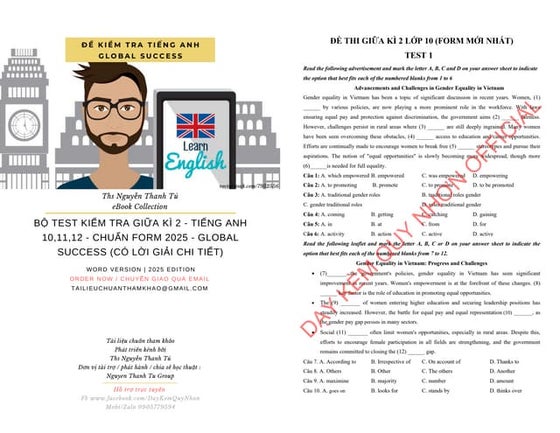



Bß╗ś TEST KIß╗éM TRA GIß╗«A K├ī 2 - TIß║ŠNG ANH 10,11,12 - CHUß║©N FORM 2025 - GLOBAL SU...Nguyen Thanh Tu Collection
╠²
https://app.box.com/s/ij1ty3vm7el9i4qfrr41o756xycbahmgInventory Reporting in Odoo 17 - Odoo 17 Inventory App



Inventory Reporting in Odoo 17 - Odoo 17 Inventory AppCeline George
╠²
This slide will helps us to efficiently create detailed reports of different records defined in its modules, both analytical and quantitative, with Odoo 17 ERP.ASP.NET Web API Interview Questions By Scholarhat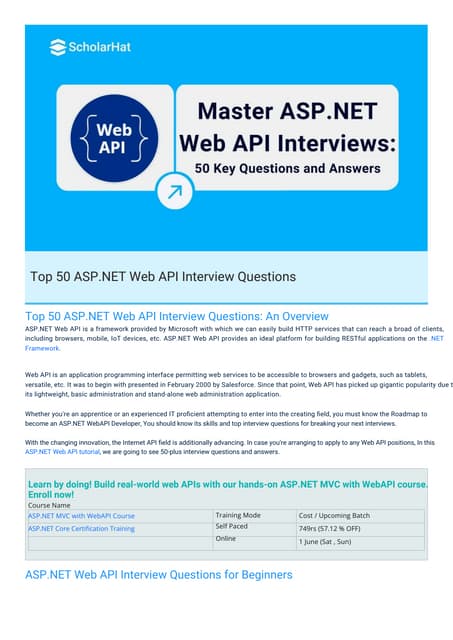



ASP.NET Web API Interview Questions By ScholarhatScholarhat
╠²
ASP.NET Web API Interview Questions By ScholarhatRRB ALP CBT 2 Mechanic Motor Vehicle Question Paper (MMV Exam MCQ)



RRB ALP CBT 2 Mechanic Motor Vehicle Question Paper (MMV Exam MCQ)SONU HEETSON
╠²
RRB ALP CBT 2 Mechanic Motor Vehicle Question Paper. MMV MCQ PDF Free Download for Railway Assistant Loco Pilot Exam.Azure Administrator Interview Questions By ScholarHat



Azure Administrator Interview Questions By ScholarHatScholarhat
╠²
Azure Administrator Interview Questions By ScholarHatMastering Soft Tissue Therapy & Sports Taping



Mastering Soft Tissue Therapy & Sports TapingKusal Goonewardena
╠²
Mastering Soft Tissue Therapy & Sports Taping: Pathway to Sports Medicine Excellence
This presentation was delivered in Colombo, Sri Lanka, at the Institute of Sports Medicine to an audience of sports physiotherapists, exercise scientists, athletic trainers, and healthcare professionals. Led by Kusal Goonewardena (PhD Candidate - Muscle Fatigue, APA Titled Sports & Exercise Physiotherapist) and Gayath Jayasinghe (Sports Scientist), the session provided comprehensive training on soft tissue assessment, treatment techniques, and essential sports taping methods.
Key topics covered:
Ō£ģ Soft Tissue Therapy ŌĆō The science behind muscle, fascia, and joint assessment for optimal treatment outcomes.
Ō£ģ Sports Taping Techniques ŌĆō Practical applications for injury prevention and rehabilitation, including ankle, knee, shoulder, thoracic, and cervical spine taping.
Ō£ģ Sports Trainer Level 1 Course by Sports Medicine Australia ŌĆō A gateway to professional development, career opportunities, and working in Australia.
This training mirrors the Elite Akademy Sports Medicine standards, ensuring evidence-based approaches to injury management and athlete care.
If you are a sports professional looking to enhance your clinical skills and open doors to global opportunities, this presentation is for you.Oral exam Kenneth Bech - What is the meaning of strategic fit?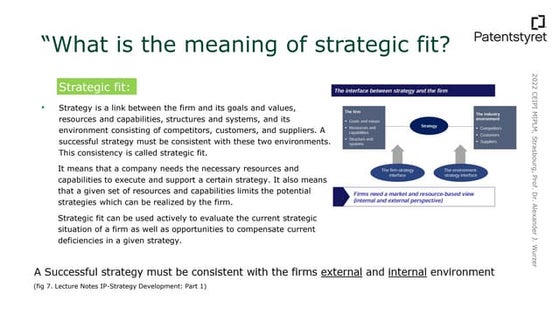



Oral exam Kenneth Bech - What is the meaning of strategic fit?MIPLM
╠²
Presentation of the CEIPI DU IPBA oral exam of Kenneth Bech - What is the meaning of strategic fit? Dr. Ansari Khurshid Ahmed- Factors affecting Validity of a Test.pptx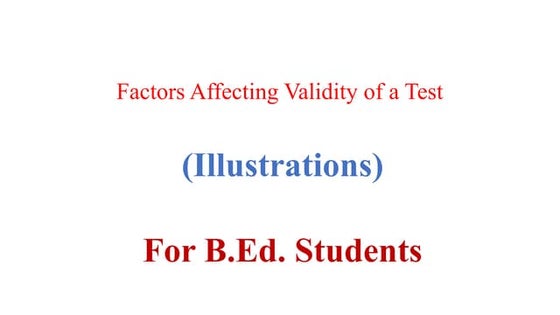



Dr. Ansari Khurshid Ahmed- Factors affecting Validity of a Test.pptxKhurshid Ahmed Ansari
╠²
Validity is an important characteristic of a test. A test having low validity is of little use. Validity is the accuracy with which a test measures whatever it is supposed to measure. Validity can be low, moderate or high. There are many factors which affect the validity of a test. If these factors are controlled, then the validity of the test can be maintained to a high level. In the power point presentation, factors affecting validity are discussed with the help of concrete examples.One Click RFQ Cancellation in Odoo 18 - Odoo ║▌║▌▀Żs



One Click RFQ Cancellation in Odoo 18 - Odoo ║▌║▌▀ŻsCeline George
╠²
In this slide, weŌĆÖll discuss the one click RFQ Cancellation in odoo 18. One-Click RFQ Cancellation in Odoo 18 is a feature that allows users to quickly and easily cancel Request for Quotations (RFQs) with a single click.Bß╗ś TEST KIß╗éM TRA GIß╗«A K├ī 2 - TIß║ŠNG ANH 10,11,12 - CHUß║©N FORM 2025 - GLOBAL SU...



Bß╗ś TEST KIß╗éM TRA GIß╗«A K├ī 2 - TIß║ŠNG ANH 10,11,12 - CHUß║©N FORM 2025 - GLOBAL SU...Nguyen Thanh Tu Collection
╠²
importanceofplay-171226140145.pbbbbbbnpt
- 4. DEFINITION OF PLAY ’éä Play is the activity that has no serious motive and from which there is no material gain. The distinction between work and play however lies in the mental attitude. ’éä Football can be play for children or can be work and means of earning for the professional footballer.
- 7. IMPORTANCE OF PLAY ’éä Play help in development in children in various aspects i.e. ’āś Physical, ’āś Intellectual or educational, ’āś Emotional, ’āś Moral and social.
- 12. TYPES OF PLAY ’éä Play is the natural and spontaneous. It depends upon age, sex, interest, personality, ability, cultural pattern and social economic status of the childŌĆÖs family. ’éä Play, playtime, playmates decrease as the age increase. Play is social behavior which differs in various age groups and depends upon the level of development. It is individualized behavior.
- 13. ’āÆ Infant : Usually engage in social affective play, sense pleasure play and skill play. ’āÆ In social affective play infants response by smiling, cooing in the interacting adults. ’āÆ In sense pleasure play. They learn and explore environment through various sensory experience. ’āÆ They develop skill through imitation. Young children also engage in sense pleasure play and skill play. ’āÆ Preschool children: ’āÆ Preschool children enjoy dramatic play through which they identify themselves with adult and dramatize adultŌĆÖs behavior.
- 14. ’āÆ School children : ’āÆ School children enjoy competitive sports, games and they develop hobbies for recreation and diversion. School age children imitate and dramatize more complex activities even acting out stories in books. ’āÆ Adolescents : ’āÆ Adolescent and older school age children engage in a more sophisticated type of fantasy activity called day dreaming. They spend their leisure time in competitive sports, operating computers, watching television, listening to the radio, reading etc.
- 15. Play behavior can be described as ŌĆō unoccupied, solitary, on looking, parallel, associative and cooperative. ’üČ In unoccupied play behavior ’āÆ The child is not involved in play activity but may move around randomly, crawl under a table, climb on and off a chair or follow another person or just stand alone with least social involvement.
- 16. ’üČ Solitary independent play ’āÆ Solitary independent play indicates when the child plays alone independently. Toddlers and pre-toddlers engage in this type of concentrating play with less interaction with others. ’üČ On looking play : ’āÆ Onlooker play behavior found when the child watches other play but does not become engaged in their play. The child may sit nearby or near or see what others are doing or talking as she/he feels interest.
- 17. ’üČ Parallel play : ’āÆ Parallel play is an independent play activity when the child plays alongside other children but not with them. They play similar or identical play as other children play nearby. ’üČ Cooperative play ’āÆ Cooperative play behavior is found in preschool and school children. They engage in formal game in group like football or dramatic play of life situation.
- 18. SELECTION AND CARE OF PLAYMATERIALS ’āÆ Selection of play materials and toys depends upon age, abilities, interests, like and dislikes, culture, experience, personality and level of intelligence of the child. ’āÆ The play materials should have the following characteristics: ’āś Safe, washable, light weight, simple, durable, easy to handle and non-breakable. ’āś Realistic, attractive, constructive and offer problem solving opportunities. ’āś No sharp edges and no small removable parts which may be swallowed or inhaled. ’āś Not over stimulating and frustrating.
- 19. ’āś No toxic paints, not costly, not inflammable and not excessive noisy. ’āś Play things with electrical plugs should be avoided, only children over 8 years of age should be permitted to use them. ’éä Parents should avoided impulse of buying toys because of advertisement in the mass media. Toys can be purchased on the basis of the above mentioned criteria and safety measures to be followed. ’éä Supervision during play is important to prevent accidental injury.
- 20. ’āÆ Correct use of toys. Parent should explain the direction for use and the caution labels. ’āÆ Safe storing of toys in a space with easy reach and away from busy areas. ’āÆ Keep the play things in good conditions. Parent should repair or discard damaged and broken toys. ’āÆ The wrong toys for the wrong ages can be injurious to children. ’āÆ Electronic toys and games can also be shared by the adults in the childrenŌĆÖs play time. Parents may interact and initiate the use with precaution. INSTRUCTIONS TO THE PARENTS
- 21. SUTAIBLE PLAY MATERIALS ACCORDING TO AGE
- 22. INFANT: 4 WEEKS TO 4 MONTHS ŌĆō HANGING CRADLE TOYS BALLOONS
- 23. INFANT: 4 WEEKS TO 4 MONTHS ŌĆō RATTLES BRIGHT AND MOVING OBJECTS
- 24. INFANT: 4 MONTHS TO 6 MONTHS ŌĆō SOFT SQUEEZE TOYS TOY ANIMAL
- 25. INFANT: 7 MONTHS TO 9 MONTHS ŌĆō BLOCKS CUBES
- 26. INFANT: 10 MONTHS TO 12 MONTHS ŌĆō WATER PLAY DOLL
- 27. INFANT: 10 MONTHS TO 12 MONTHS ŌĆō PICTURE BOOKS MOTION TOYS
- 28. INFANT: 10 MONTHS TO 12 MONTHS ŌĆō PULL AND PUSH TOYS.
- 29. TODDLERS: PLAY TELEPHONE PULL-PUSH TOYS,
- 34. ROLE OF NURSE ’éä The nurse should encourage and motivate the children and parents for play and make them aware about the importance of play. ’éä Parents should allow the child to play and arrange the play things. ’éä The important nursing responsibility is to teach the parent about safety measures and observation, interaction and supervision of the children during play. ’éä Nurse should initiate play at home, hospital, or in health care agency depending upon the individual choice with high flexibility. ’éä Nurse should inform about the modern concept of play to the parents.




